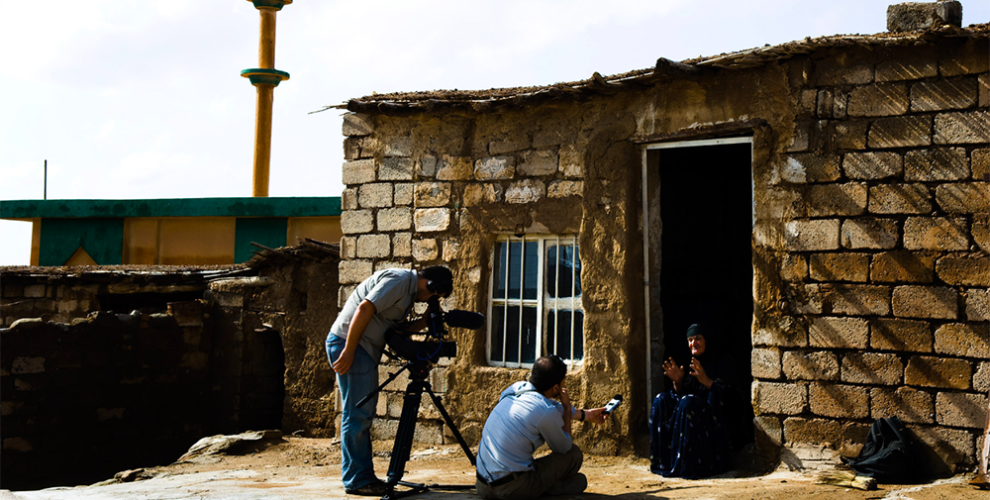Documenting Kurdish history
The important work of the “Kurdistan Memory Programme”
The important work of the “Kurdistan Memory Programme”

The task is ambitious: Documenting the Kurdish story for the world. It is also a vital task, not just a project but a necessity.
The promoters of the “Kurdistan Memory Project” make no mystery of what they aim to achieve with the website they have launched: Record Kurdish history in sound and living colour, definitively documenting the unique voices of Kurdistan for future generations.
In their mission the promoters state: History is not just about winners and losers. It is about people. Their experiences, told and remembered in the form of personal stories passed through generations, are the oral heritage of a nation’s triumphs and tragedies”.
And yet, they say, “with most of the world’s historical resources, normal people – the flesh, blood and minds of a nation – are ignored in favour of the dusty, secondary opinions found in unread library books”.
Which is where the KMP comes into play: the approach is different, say the promoters, “we are producing a world class multimedia record of modern Kurdish history to help new generations understand how the events of the past shape their future”.
Internet clearly offers many opportunities, and they are all being exploited by the KMP: texts, videos, graphics, all go into producing the final website.
The KMP, states the mission, collects stories from people who have witnessed key events in modern Kurdish history to establish an accessible filmed record, in both Sorani Kurdish and English, that will be freely available to all online.
The most exciting and emotively strong part of the work is clearly the collection of personal stories and testimonies: a high level of professionalism, sensitivity and empathy is needed to be able to interview people who suffered a great deal during their live. “Interviewees share painful memories to let the world know the truth of what happened to them and ensure this history isn’t lost”, confirmed the promoters. Documenting trauma is a painful process but, as the promoters underlines, is “an essential step in ensuring that history is not allowed to repeat itself in Kurdistan”.
As to how the team of “media professionals and researchers from Iraqi Kurdistan, the UK, Europe and the USA” collect stories, the promoters underlined their “film teams travel throughout Kurdistan to record the accounts of survivors of executions, gas attacks, deportation, flight and imprisonment. These video testimonies form the basis of a remarkable collection – a living tribute to Kurdish struggle and survival that has unparalleled exhibition and research potential”.
One of the first collective memory the project is sharing with the public, is the Anfal.
Anfal (‘Spoils of War’) is the name of the eighth sura of the Koran. This is also the name the Iraqis gave to a series of genocidal military actions between late February and early September 1988 which led to the deaths of up to 182,000 rural Kurds. The KMP offers a series of film in which testimonials survivors describe their experiences of Anfal.
A team of Kurdish and British filmmakers have been travelling all over Iraqi Kurdistan collecting testimonies from villagers who witnessed key events in Kurdish history, especially the Anfal and also the most recent Yazidi genocides.
The Kurdistan Memory Project also offer a journal and a very interesting Film Library. A journal will be published collecting the events and initiatives of the KMP around the world.
A Kurdistan Museum is a kind of virtual museum which will be hosted in different cities and museums around the world.